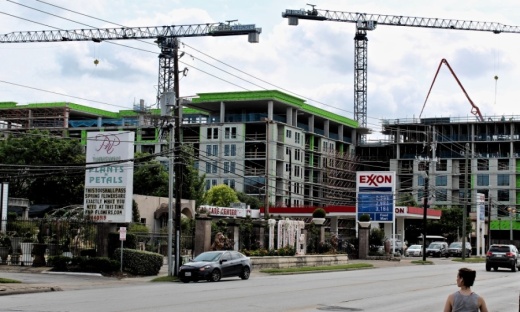"We're seeing a combination of a kind of urban flight and Houston's uncanny ability to deliver massive amounts of new inventory at the worst possible time," said Bruce McClenny, president of ApartmentData.com, which provides analytics to the multifamily industry. "It's a pretty devastating drop."
As of Dec. 31, rents had fallen by double-digit margins over the previous 12 months in three key markets: Downtown, Highland Village-Upper Kirby-West University, and Montrose-Museum District-Midtown. Those three markets also added over 3,300 new apartment units during the same time period, pushing occupancy rates down to around 84% or lower. In other core areas, such as Heights-Washington Avenue and Med Center-Brays Bayou, rents did not fare much better, falling by 9.4% and 8.6%, respectively, and the Heights saw occupancy rates drop to close to 82%.
There were over 12,000 unoccupied apartment units out of 79,000 in those five Inner Loop markets at the end of 2020, and roughly 7,700 more units are under construction.
"I would hope that these operators in those areas—at some point, you can’t lower rents anymore. They just have to wait for people to show up," McClenny said.
That means waiting for Houston's job market to recover the 147,000 estimated jobs that were still lost as of the end of 2020.
By contrast, however, some suburban markets, such as Sugar Land, Pearland and Clear Lake, showed stable or even slight increases in rent in 2020, suggesting increased demand and a transition away from urban-centered lifestyles amid the pandemic, McClenny said. Workforce housing in the Class B and C levels also showed stability in rents and occupancy rates despite fears of widespread evictions, though ApartmentData.com does not track eviction rates.
"The rental assistance has helped some, the moratorium has helped some, but there are still many operators worried—operators who owe money to banks and lenders—and they will be looking to get some kind of direct relief," he said.





